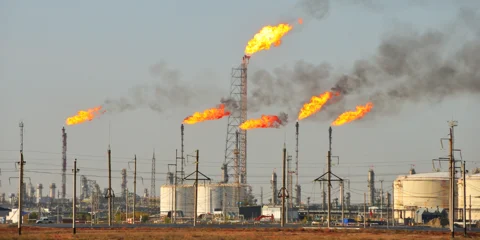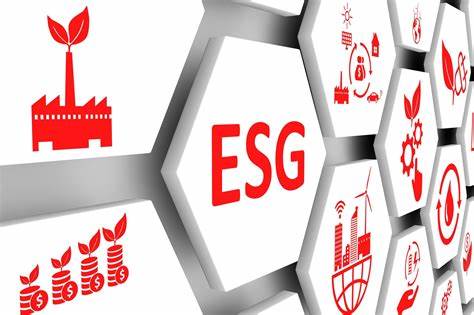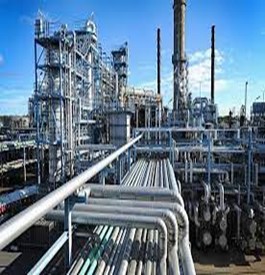Executive Summary
Nigeria is one of the largest and oldest oil producers in Africa. The Oil and Gas sector is one of the most important sectors in the country’s economy, accounting for more than 90% of the country’s exports and 80% of the Federal Government’s revenue (Base Year: 2021).
This newsletter focuses on the prominent risks oil and gas companies face, the significant ESG impact of these risks on the economy and communities where they operate, and key recommendations to major players in this sector.
However, it is important to note that despite the risks, there is still a substantial demand for energy in Nigeria, and oil and gas play a major part in filling that demand. Oil and gas companies remain among the most heavily traded public companies globally.
The long-term risk for oil and gas companies is a dwindling natural supply, while short-term risks include political stances and supply-and-demand. Other major risks the sector faces are price, geological, and operational cost risks. Natural resource pricing relies heavily on the underlying cost of procuring and refining the resource and the price of the completed commodity itself.
Whereas, to the investors and lenders, the oil and gas operational activities, usually of public concern, may result in reputational, liability, and/or credit risk issues.
ESG Issues in Oil and Gas Operations

- Coastal and marine impact
Major impacts and threats are posed on aquatic lives and marine biodiversity, which could arise from offshore exploration activities and seaside operations, particularly from oil tankers or pipelines (spills). Poor occupational safety measures and unstable sea weather conditions can hinder clean-up activities following oil spills.
- Climate change impact
Oil production faces increasing risks from the effects of climate change from extreme weather events, sea-level rise, and impacts on finite fossil fuel or non-renewable resources such as coal, petroleum, natural gas, oil shales, bitumen, etc. It also includes the long-term effects of ozone depletion and global warming from greenhouse gas (GHG) emissions (such as carbon dioxide, methane, nitrous oxide, and fluorinated gases emitted in the atmosphere) due to the refining and processing of crude oil.
Gas is flared during the oil drilling and refining process. Gas flaring introduces toxic pollutants into the atmosphere, such as sulfur dioxide, which can lead to environmental issues such as acid rain and the generation of greenhouse gases that contribute to global climate change.
- Revenue transparency
Bribery and corruption may be a practice in most business operational activities in Nigeria with oil and gas inclusive, particularly in developing economies and states with weak governance structures. This relates to poor or no-disclosure observations from most organizations and the exporting of fuels and revenues from vulnerable energy communities.
- Sustainable community development, health, and safety
Sustainable community development playing a vital role in the value of oil and gas resources to the Government has been severely neglected, and thereby, fewer measures are taken to reduce the environmental, social, and economic impact of the operational activities on the host community. This leaves the people of the oil and gas-producing communities with a deeply entrenched dilemma of sustainable community development with the occurrence of environmental degradation, which has adverse public health consequences and is detrimental to the community’s development process, for example, Bayelsa, Ogoni, and Ubeta community in the Niger Delta region, Nigeria.
The spread of diseases (air-borne or water-borne), hardship in farming, water scarcity, and road accidents in the community may increase. The operations majorly impact vulnerable people in the community (the poor, indigenous, women, children – the disadvantaged).
- Occupational Health, Safety & Environmental (OHS&E) risks
Inadequate occupational, health, safety, and environmental measures could lead to major explosions, oil leaks or spills; destruction, or irreversible impacts on critical environmental or social habitats (which could include rainforests, coastal and marine habitats, communities, and any protected areas etc.)
- Involuntary resettlement
The development of new projects by the company may require land acquisition from the host communities, wherein incentives are paid to the people in most cases, but results in the loss of farmlands, thus, the need for relocation. The people could also be involuntarily displacement (physical and economic) due to other emergency factors such as fire outbreaks or water pollution, leading to hunger and danger to lives and properties.
- Security of indigenes and human rights violations
The fundamental injustice arising from the community human rights violations, workforce security, failure to provide sustainable development and to operate in accordance with internationally accepted industry standards leads to poverty, disillusionment, inequality, social conflicts and unrest, child labour, terrorism, and sabotage within the host communities.
Regulation Best Practice
According to historical assessments, a lack of robust regulatory practices and oversight in the oil and gas industry has led to a range of adverse consequences, including environmental deterioration through incidents like oil spills, accidental explosions, produced formation water, and gas flaring. Additionally, it has resulted in the pollution of water sources essential for fishing and agriculture, the displacement of rural farmers from their primary sources of income, increased poverty levels, heightened migration rates, and exacerbated food shortages.
The Petroleum Industry Act (PIA), signed in 2021 by Nigerian President- Muhammadu Buhari, overhauls the regulation and governance of Nigeria’s oil and gas industry.
- The law provides two regulatory agencies—the Nigerian Upstream Petroleum Regulatory Commission (NUPRC) and the Nigerian Midstream and Downstream Petroleum Regulatory Authority (NMDPRA) to be responsible for the technical and commercial regulation of petroleum operations in the various sectors.
- The PIA aims to address the relationship between oil and gas and host communities in Nigeria by creating the Host Community Development Trust Fund (HCDTF), whose purpose will be, among others, foster sustainable prosperity, provide direct social and economic benefits from petroleum to host communities and enhance peaceful and harmonious coexistence between licensees and host communities.
- The PIA penalizes companies for gas flaring and provides that the revenues from the penalties will be used for environmental remediation and relief of the impacted host communities. In addition, the act stipulates penalties for failure to comply with host community obligations, including revocation of license.
- The law also commercializes the Nigerian National Petroleum Company (NNPC), turning it into the NNPC Ltd. It provides that 30 percent of the NNPC Ltd profits will fund a new entity to finance exploration in other basins in the country (Frontier Exploration Fund).
- The PIA introduces a new tax regime, replacing the existing petroleum profits tax with a hydrocarbon tax and introducing a tax on the income of oil companies.
Recommendations
Risk management practice and effective policy implementation are critical to achieving sustainable development. Poor environmental management, over-centralization, lack of oversight, inadequate capacity, and poor policy implementation have been identified as key social and environmental management issues in Nigeria’s Oil and Gas (O&G) sector.

Measures to manage ESG risks associated with O&G industry operations.
- Compliance with guidelines and effective measures on treatment and disposal of effluents, handling of drilling mud, cutting drills, and oil spills will minimize oil operational hazards and pollution to the environment.
- Permits, licenses, and consents are likely required for oil and gas operations, the specifics of which will depend on the jurisdictional framework in the geographical location of a given project or country system. The regulatory bodies supervise and regulate all oil and gas industry operations, including enforcement of environmental regulation, standards-setting, and safety, through the Environmental Guidelines and Standards for Petroleum Industry in Nigeria (EGASPIN), in line with the passed PIA-2021.
- In developing States, weak governance structures could indicate less stringent local controls and regulations. While there are enough legal and regulatory frameworks, weak enforcement and poor implementation of the existing regulations provide fertile ground for environmental degradation to persist. In such cases, the project or business advocate of best practices should ideally adhere to international social and ecological standards and industry best practices.
- In the case of large-scale (upstream) new build, expansion and development projects, an Environmental and Social Impact Assessment (ESIA) will be required. A comprehensive ESIA undertaken to the best standards allows the project sponsor and the investors to assess the potential E&S impacts related to a project’s development, operations, and decommissioning. Part of the ESIA process is to design appropriate mitigation measures and set a framework for monitoring the performance of these measures on a long-term basis. A full ESIA may not be required for smaller-scale projects and operations. However, focused studies on issues of concern may help identify potential ESG risks associated with certain oil and gas project activities.
- Labour issues must be considered, mainly where operations are remote and/or labour has been migrated. Affected communities must be involved in a public stakeholder engagement process, and all identified risks are to be managed appropriately by the company. There should be a fit-for-purpose grievance redress mechanism in place.
Conclusion
The Oil & Gas sector will need to build resilience to adapt to the changing conditions and risks from its operational activities.
Oil and Gas companies should consider adopting emerging ESG practices for their operations, such as diversifying into alternative fuels and transitioning to renewable energy to promote a sustainable future and build resilience to climate change transition risk.
The major permits/licenses required of oil and gas operators are DPR Permit, National Environmental Standards and Regulations Enforcement Agency (NESREA) certificate, Nigerian Maritime Administration and Safety Agency (NIMASA) license, Nigerian Port Authority (NPA) license, Fire Safety certificate, etc.
The next newsletter edition will focus on ESG emerging opportunities in the Nigerian Oil and Gas industry and the impacts of climate-related risks (physical and transition risks).
Reference links: https://www.mordorintelligence.com/industry-reports/nigeria-oil-and-gas-market
https://www.ccsenet.org/journal/index.php/jsd/article/view/57507
















